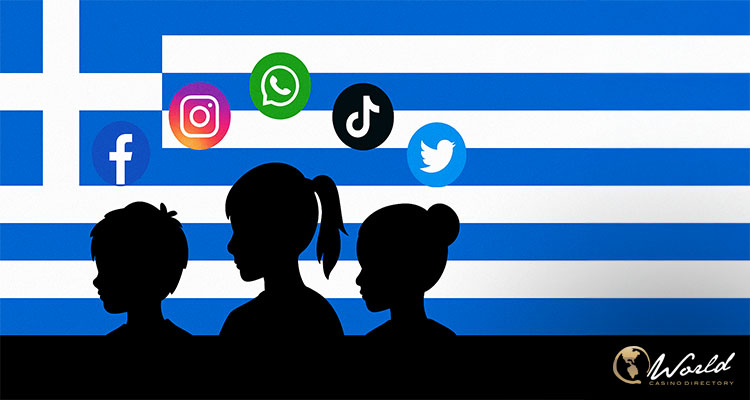Greece is preparing to roll out sweeping new digital restrictions aimed at shielding minors from harmful online activities. Beginning in October 2025, children under the age of 15 will be automatically barred from accessing social media, while anyone under 18 will be blocked from entering online gambling platforms and digital tobacco shops. If fully enacted, this plan would make Greece the first nation in the European Union to implement such automatic protections.
The centerpiece of the initiative is Kids Wallet, a state-backed mobile application that verifies a child’s age and filters access at the device level rather than through individual platform accounts. The app, which launched in May, already allows parents to set time limits, supervise screen use, and establish a “digital identity” for their children. Parents link their tax identification credentials to the system, upload age-verifying documents, and then set permissions. Once a child reaches 15, parental approval is no longer necessary.
Currently optional, the tool may soon become mandatory, depending on the final decision from Prime Minister Kyriakos Mitsotakis. Officials cited by Greek City Times say he has taken a strong personal interest in the project.
Curbing Addiction Through Technology
The restrictions aim to counter two rising concerns: compulsive social media use and the lure of digital gambling. Researchers have warned that popular platforms such as TikTok rely on reward-driven algorithms that closely resemble gambling mechanisms, reinforcing addictive behaviors in young users. These patterns can interfere with memory, focus, and emotional health.
By enforcing age barriers on gambling websites and retail portals, the government intends to limit exposure to highly addictive products. Currently, the legal gambling age in Greece is 21, but the new system will automatically block anyone under 18. This gap has drawn attention as authorities balance strict enforcement with technical feasibility.
The Greek initiative also coincides with a broader EU push under the Digital Services Act to strengthen online safety for minors. Commission President Ursula von der Leyen has championed a proposal for a continent-wide “digital majority age.” Speaking at the United Nations, she emphasized: “Many European Union countries believe the time has come for a ‘digital majority age’ for access to social media. And I must tell you, as a mother of seven children, and grandmother of five, I share their view.”
Global and European Momentum
The Greek measures do not stand in isolation. Australia will implement similar rules on October 10, blocking under-16s from social media and online dating platforms. Unlike Greece, which relies on device-level verification, Australia’s system requires users to confirm their identities to open or maintain accounts on platforms like Facebook, YouTube, and TikTok. However, loopholes remain, as minors can still view certain content without logging in.
Meanwhile, within Europe, several nations—including France, Spain, Denmark, and Italy—are already piloting systems to restrict social media access for younger users. A European Commission delegation will arrive in Athens this week to exchange technical knowledge and assess Greece’s progress.
Greece has also been holding talks with major technology companies, including Google, to ensure that the restrictions are technologically feasible and enforceable on a wide scale. According to the Ministry of Digital Governance, the framework is being designed with EU expertise, but key decisions will ultimately rest with the prime minister.
Gambling Oversight Under Scrutiny
The move to regulate minors’ access to gambling sites comes at a time when Greece’s gambling sector is already under intense investigation. Authorities are probing alleged money laundering involving around 200 individuals, including civil servants, who are suspected of channeling funds through gambling accounts. This has prompted the government to promise tighter controls on both licensed and illegal gambling operations.
Against this backdrop, the introduction of Kids Wallet is seen as part of a wider attempt to restore public trust in the regulation of gambling while protecting younger users from exposure. If Prime Minister Mitsotakis finalizes the measures in October, Greece will join Australia at the forefront of global regulation—each with different models but a shared goal of curbing online risks for young people.



